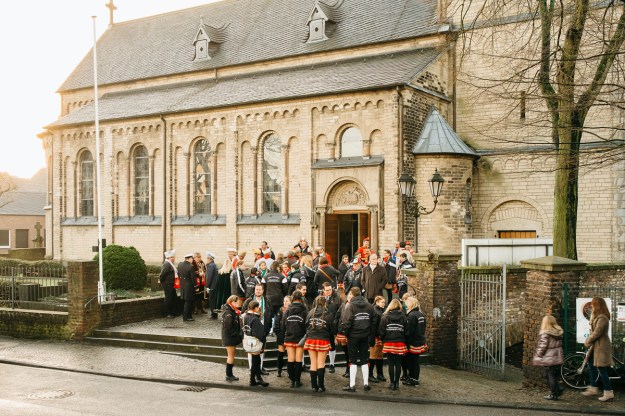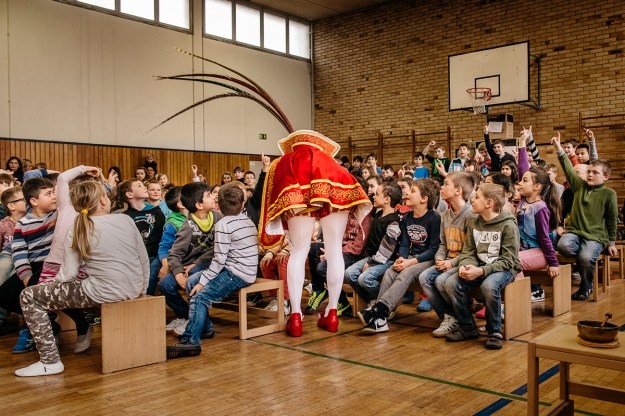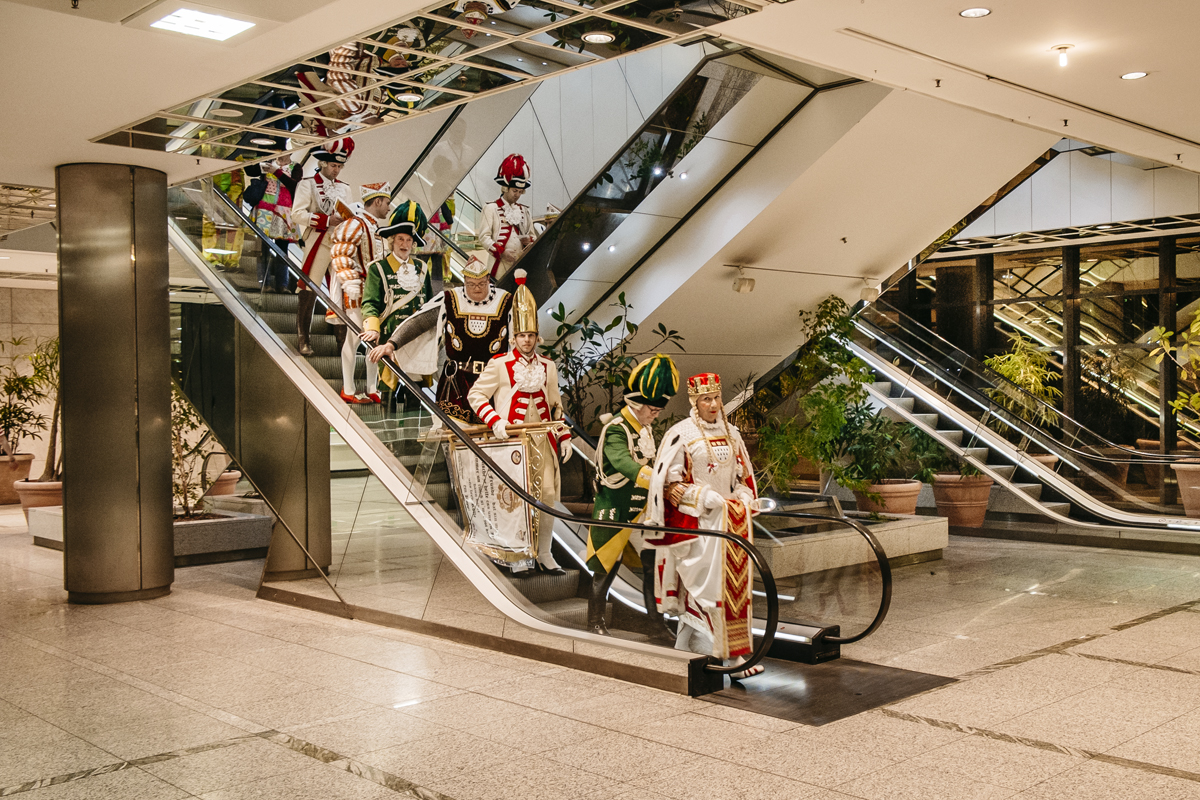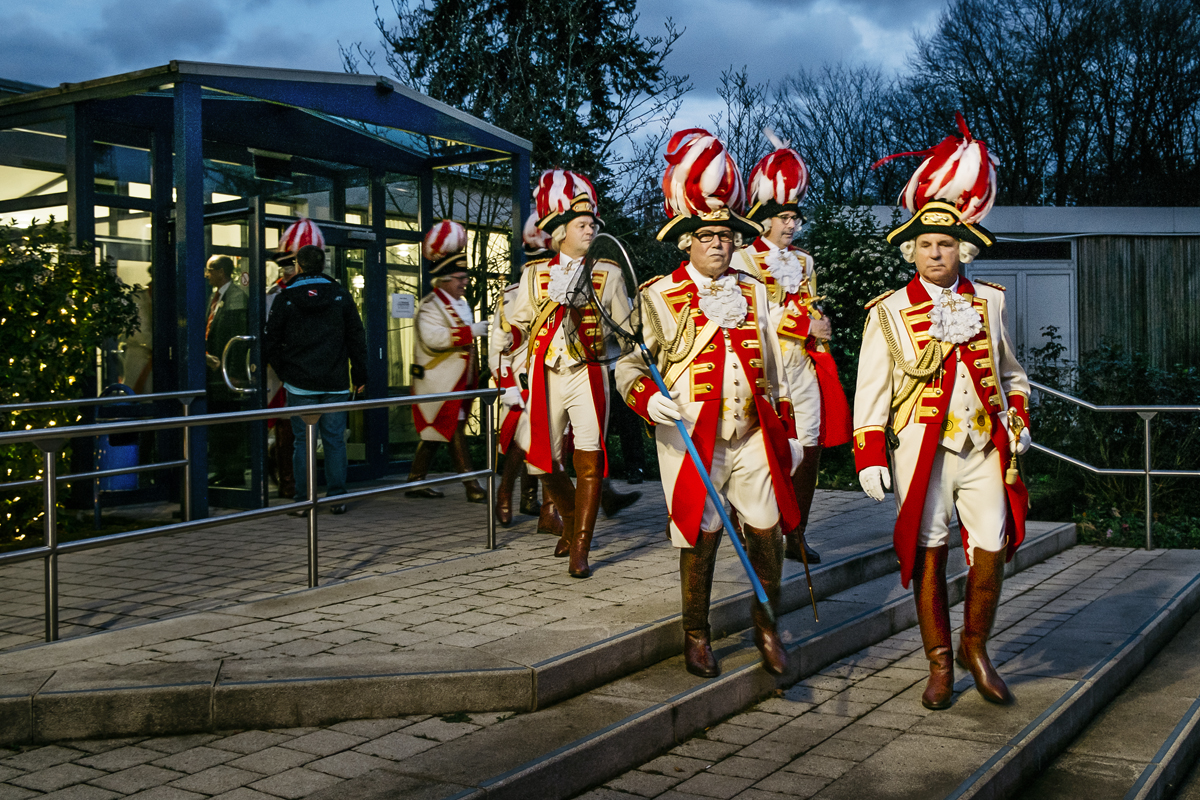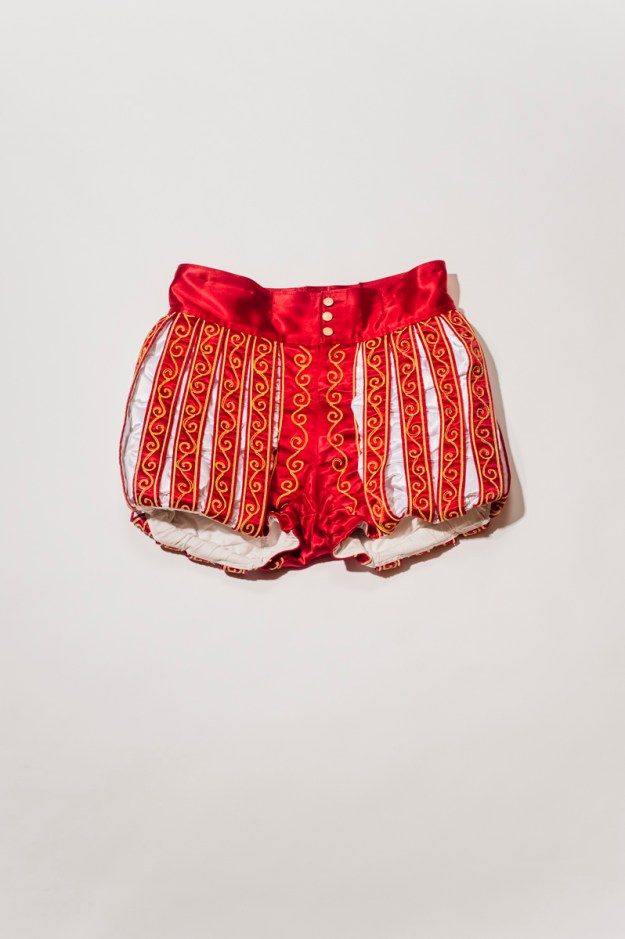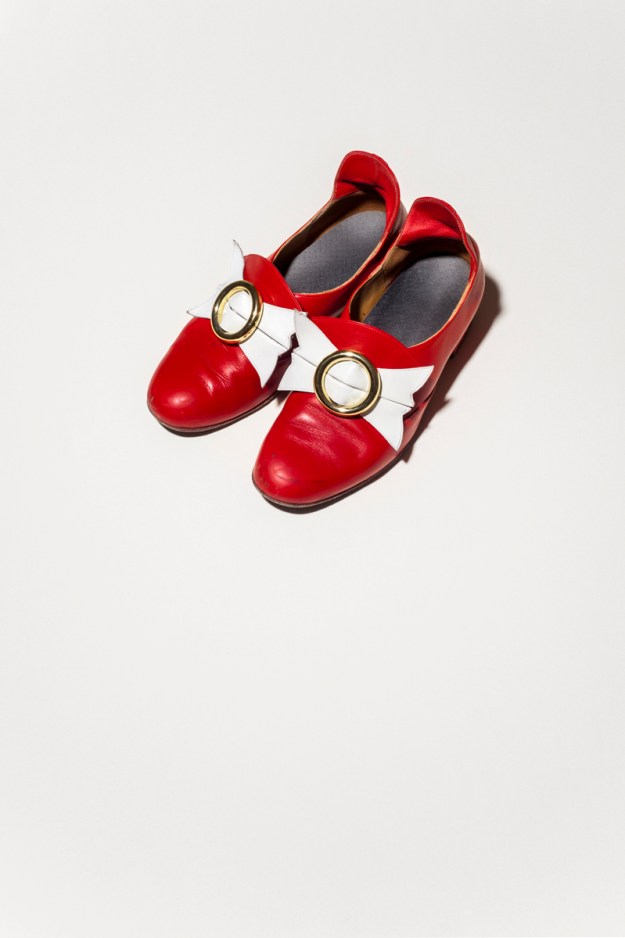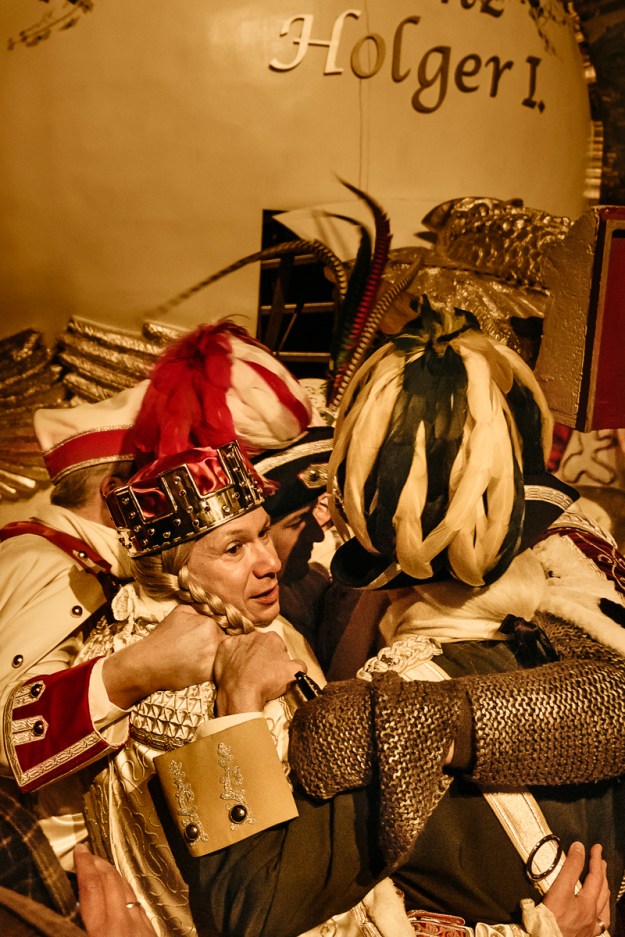When Holger Kirsch, an architect I regularly work with, called me for a job, I assumed he was going to ask me to photograph more houses, living rooms, and buildings for him. But this assignment was different: he was applying to become the Prince of Cologne.
This was back in 2013. When I arrived at his Carnival club, Kirsch was waiting for me with Michael Müller and Sascha Prinz; applications are always done as a triumvirate that features the Prince, the Farmer and the Virgin. I took their portraits in their red, green and white jackets, the official colors of their club.
A few months later, I was back in the same room when they announced the good news: Cologne’s official committee selected them as Carnival royalty. As the room exploded with joy (and a lot of toasting with Kölsch), I realized I had a unique chance to document a side of the festival that is rarely seen.
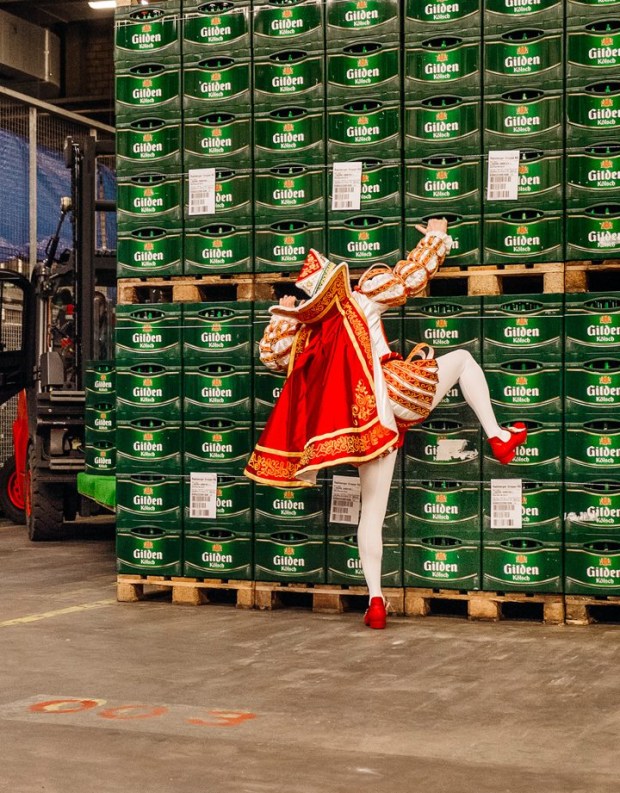
The origin of the Cologne Carnival can be traced back to the Middle Ages. The word “carnival” derives from the Latin word carnislevamen, roughly translating to “farewell to meat” and it is the last celebration before Lent. In fact, the Cologne festival was so excessive in the years before 1823 that it was repeatedly banned. Masked groups wreaked havoc in the streets of Cologne and there were tales of clashes and murders. That year, the “Festordnende Comité” was set up. The elitist committee is responsible for the event to this day and tightly controls its image.
I have celebrated Carnival my whole life. In Cologne, it’s hard not to. My friends and I would party in the streets and bars but I never went to the official shows where people sit in costumes at long tables, drink Kölsch, and listen to bands or comedians perform in Cologne’s ancient dialect. I didn’t know that side of Carnival, with all its rituals and traditions.
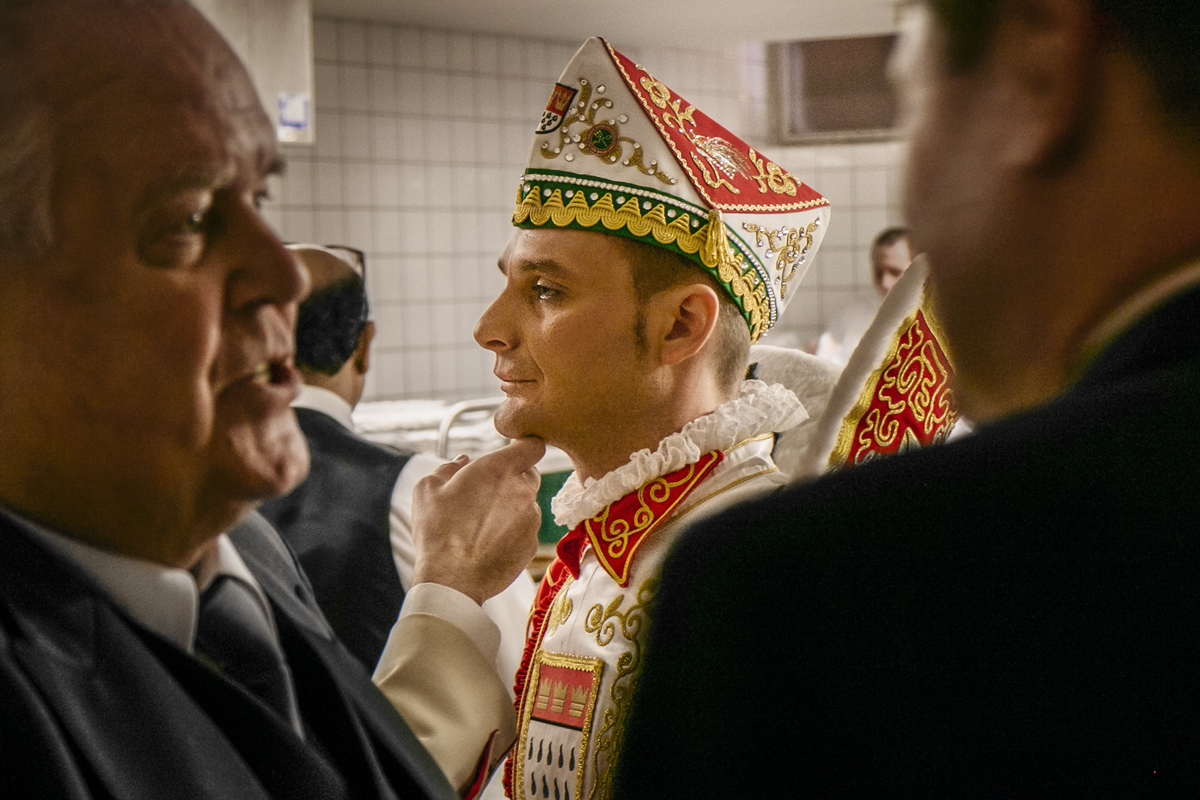

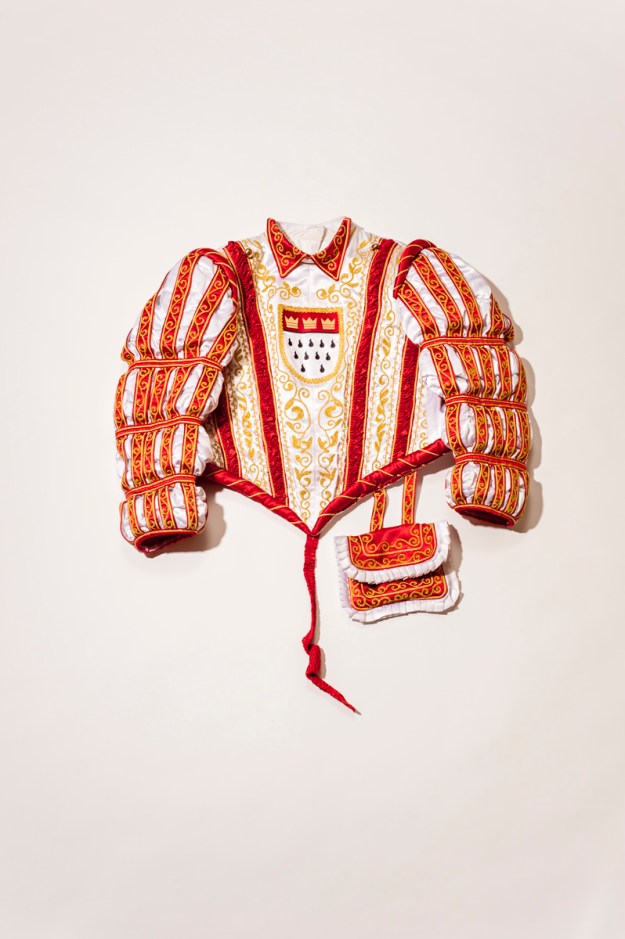
Holger Kirsch had always dreamed of becoming the Prince of Cologne. It is Carnival’s most prestigious role and it involves a lot of personal dedication, as well as high financial costs for accommodation, costumes, and candy. During Carnival season, there is no time for work or family. Kirsch’s father had to replace him at the firm.
The people of Cologne look up to the Prince. He embodies the idea of Carnival, while the Farmer and the Virgin represent all people celebrating it—together, they are known as the triumvirate. In a symbolic act, the mayor of Cologne transfers his powers to the Prince, who becomes the ruler of the city during festival season. The proclamation takes place at City Hall but you can also watch it on television. It is the first time the triumvirate is allowed to appear in their regalia (do not call them costumes).
The triumvirate is fawned over during the celebration, the Prince in particular; weeks before Carnival, he is announced in local newspapers and celebrated like a superstar. It is an open secret that a high office in the Cologne Carnival is also a professional benefit.
For eight weeks the trio performs in up to 400 events in kindergartens, retirement homes, children’s hospitals, Carnival shows, TV shows, Catholic Masses, business meetings, and more. Every triumvirate has their own act; this one learned to play the harmonica and sing traditional songs.
Carnival ends on Ash Wednesday. The Prince, the Farmer and the Virgin become normal people again—a challenge for those who get used to stardom. Soon, a new triumvirate will be selected, and the season will start all over again.

